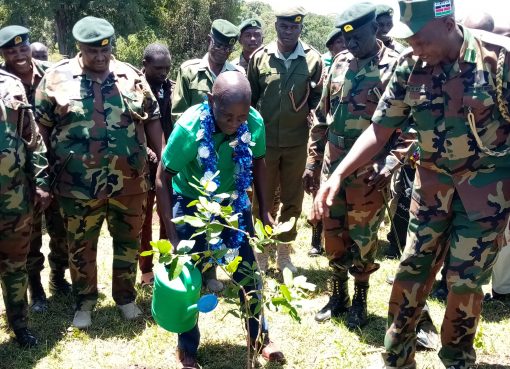The waters of Lake Victoria have been rising steadily in recent years as a result of climatic changes, land usage, and urbanization.
Sori Beach Management in Nyatike Sub County Secretary Justus Habari says that the Sori Landing Bay has been partially submerged for almost two years due to the rising waters of Victoria.
“The rapid growth of urbanization has increased water runoffs from major towns along the Nyanza region that have ended up in Lake Victoria,’said and Habari pointed out that the heavy rains that were witnessed in 2019,2020 and 2021 has immensely increased the water table in the Lake.”
The secretary said the unfinished Sori Bay Landing Site which was constructed in 2009 to enable fishing boat harbour has been rendered unusable by the rising waters.
Habari says that Migori Fishermen have been forced to harbor along the shores of Sori beach as they await the construction of a new one.
Kennedy Omondi, Nyatike Sub-County Fisheries Officer highlights that the rising waters have deeply affected Fishermen. He stated that many of the landing bays have been submerged making it impossible for boats to anchor.
Omondi says that fishermen have been forced to look for other alternative landing sites, which sometimes becomes expensive as Fishermen incur extra transport costs.
The County Officer also pointed out that fish from shallow waters like Nile Perch cannot be fished because of the rising waters. This, he added, has greatly reduced the harvest of these fish, reducing the livelihood of fishermen.
He, however, noted that the rising waters have been an added advantage and a booming business to those fingerlings and Tilapia fishermen that do their fishing in deep waters. “The only downfall that is slightly affecting the deep water fishermen is the strong tides that usually happen once in a while,” stated Omondi.

According to Eastern Africa Consortium for Clinical Research 2020, the current rise in Lake Victoria began in October 2019 and significantly went up from 12.00 meters to 13.32 meters as of April 2020. In September 2020 the levels had risen to 13.42 meters.
Micah Atonyi a fish processor and a member of Sori Beach Management emphasised that the heavy rains that were witnessed across the country in April and May 2020 had contributed to the rise of Lake Victoria waters.
Ms Atonyi says that in recent years they have witnessed the waters moving inland. She says there were a lot of trees on the beach that used to be inland but they have now been surrounded by water. She emphasized that in a few years, homesteads and properties that are near the Lake may experience the same fate.
Land-use change has also become a major reason for rising water tables in the Lake. Land use in terms of cultivation caused by human activities around the lake and the rivers that feed it has caused siltation that has raised the Lake waters.
Although the Nile Basin Initiative (NBI) 2020 highlighted that, the Lake surface receives a high amount of rainfall representing about 85 percent of water entering it, the remaining inflow comes from the 23 rivers that drain the catchment from the countries that share the Lake.
The rise of water levels in Lake Victoria has also displaced the Nyatike residents and many are still seeking refuge in nearby churches and schools.
Fisheries, Aquaculture, and Blue Economy PS Dr Francis Owino when visiting the Landing Site last week stated that the national government had allocated funds in the Financial Year 2021-2022 budget for the construction of new landing bays in the lake’s five counties. Sori Beach was identified in Migori while Nyandiwa Beach in Homa Bay will also get a new landing bay. Wichlum and Luanda Kotieno Landing Sites will be reconstructed in Siaya County and Ogal landing Site in Kisumu County respectively.
By Geoffrey Makokha and George Satia




